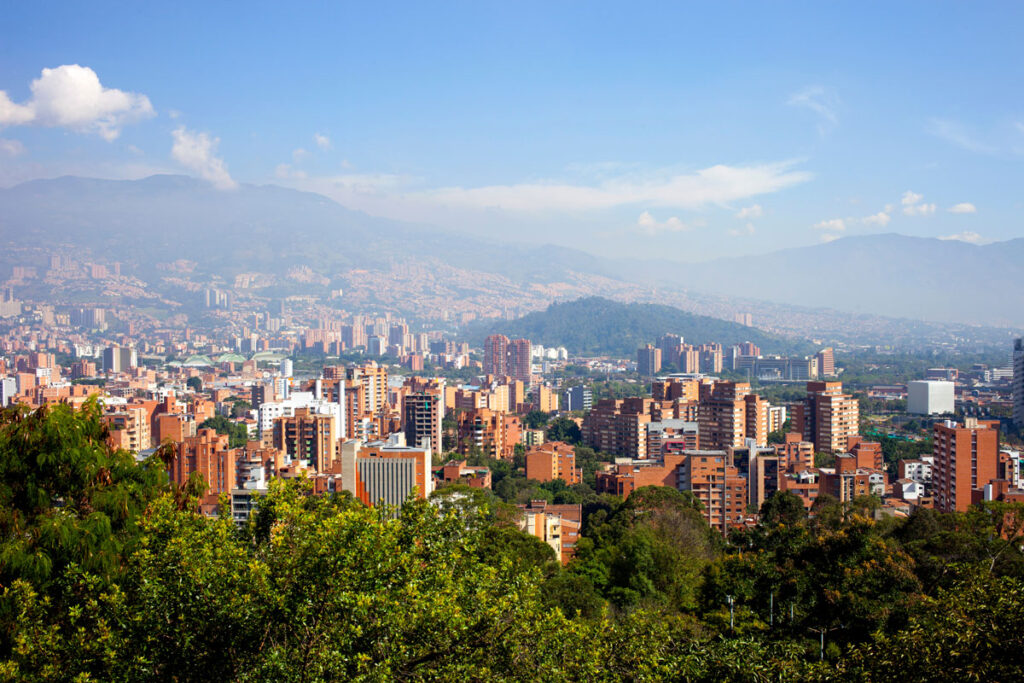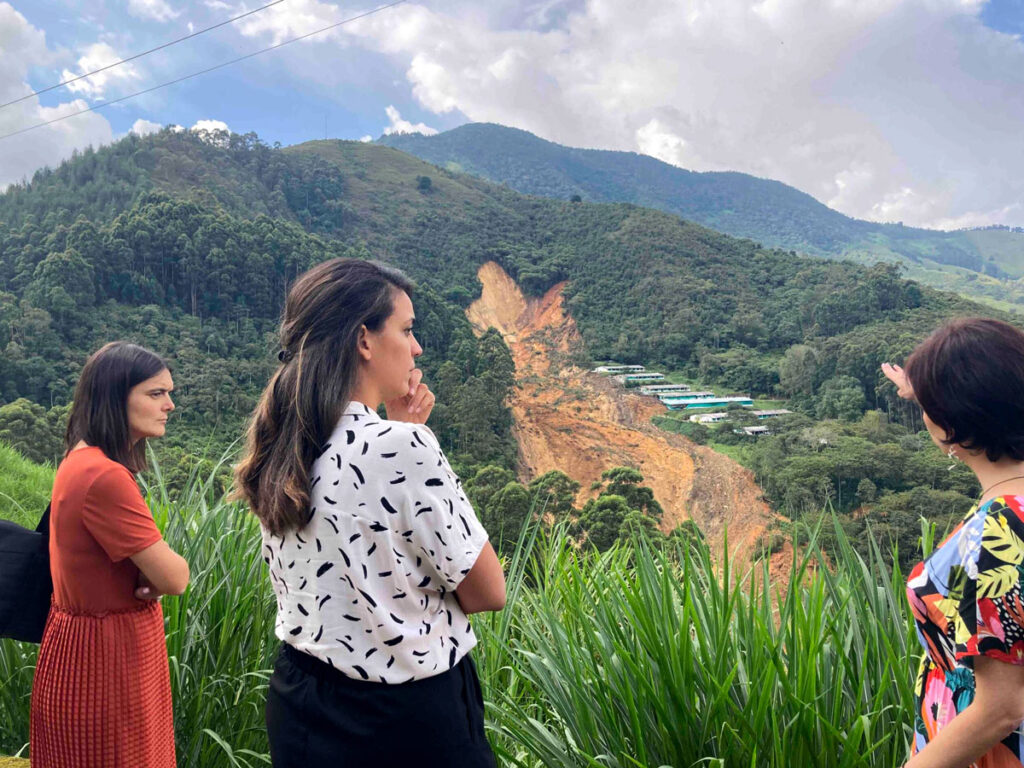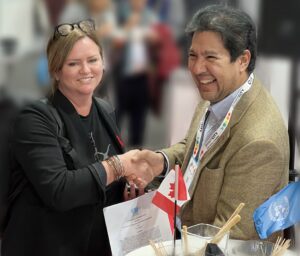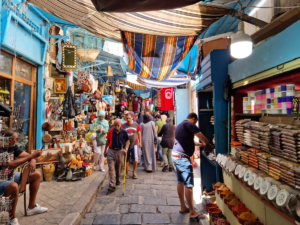The history of Medellín, Colombia, is one of the most renowned stories of resilience. The city that was once considered the most dangerous in the world is nowadays a reference for urban transformation and an MCR2030 Resilience Hub.
The murderous and violent days of Escobar in the ’80s and 90s caused, among many things, the immigration of high and middle-class families and high-skill professionals, public mistrust and shame of being from Medellin— a ‘Paisa’. Medellin’s society was disconnected; people mistrusted each other, the media, and the government.

The transformation of Medellin has been highly connected to new transit systems and associated public investments. El Metro, the rapid transit system first of its kind in Colombia, opened in 1995 with narratives of modernism, resilience and new beginnings that empowered people and created a Paisa-pride. In 2004, Medellin built the world’s first urban cable car system for public transport, which helped reduce the city’s crime rates by connecting the poorer neighbourhoods with the rest of the city. The Metro, MetroCable, and the recent Tram and bus rapid transit system—MetroPlus, expanded access to opportunity, reducing travel time and effort to work and reviving previously neglected areas. Along with these significant infrastructure investments, the city built library parks, green corridors and increased health and education coverage.
As stated by UN-Habitat, resilience is not a condition but a state —a fact that Medellin has evidenced over the past years. COVID-19 lockdowns, two months-long national protests, multiple city flooding, polarisation over elections, air pollution, poverty and inflation are some of the recent situations that threatened the city’s stability and progress, putting to the test Medellin’s resilience.
Medellín, with the collaboration of Barcelona, Spain—also an MCR20130 Resilience Hub— decided to self-assess its resilience capacity to take action for improvements. Barcelona City Council and UN-Habitat have worked closely in recent years to promote and implement actions for resilience both locally in Barcelona and in other cities around the world through the City Resilience Global Programme (CRGP). Within the city-to-city cooperation framework between Barcelona and Medellín, and as part of the agreement between UN-Habitat and Barcelona City Council with the support of CIDEU, in January 2022, the local government started a project to create the resilience profile of Medellín.
The City Resilience Global Programme team provides knowledge, mentoring and support to strengthen the capacities of the local government and their governance, supporting the mobilisation of multiple urban actors. The methodology to create resilience profiles is a tool that adapts to the needs of Medellín’s environment in a flexible process. The main objective is to accompany the municipality in building resilience.
Medellin’s Resilience Program is in the second of three phases. On June 6, 2022, the cycle of 6 workshops led by the technical team of the municipality began with the participation of different dependencies and secretaries and the support of UN-Habitat’s CRGP team and CIDEU. The objective of the cycle of workshops that make up the second phase was to collaboratively identify and prioritise the city’s risks. During the first four workshops, the municipality and multiple urban actors identified shocks, stresses, challenges, strengths and opportunities to understand the magnitude of the risk to people, assets, processes and the city’s sustainable development.

The last two workshops took place on July 14 -15 during the joint mission of the Barcelona City Council, CIDEU and UN-Habitat’s City Resilience Global Programme to Medellín. Having a complete picture of how shocks, stresses and challenges interact within each element of the urban system, the city identified the areas in which a greater number of risks converge. These are the priority areas for which the Recommendations of Actions for Resilience will be defined by a larger number of urban actors in the last and third phase.
The Recommendations of Actions for Resilience constitute the resilience roadmap of the city—an implementation and monitoring strategy for the city to enhance its resilience by maintaining and improving existing policies and defining new ones. The local government will have a plan aligned with the SDGs to implement the New Urban Agenda that builds resilience, contributes to the sustainable development of Medellin and engages all urban actors.












